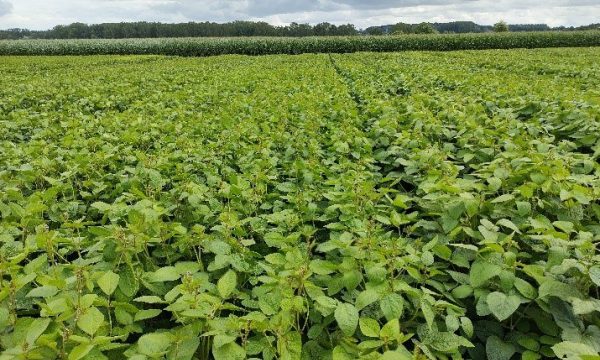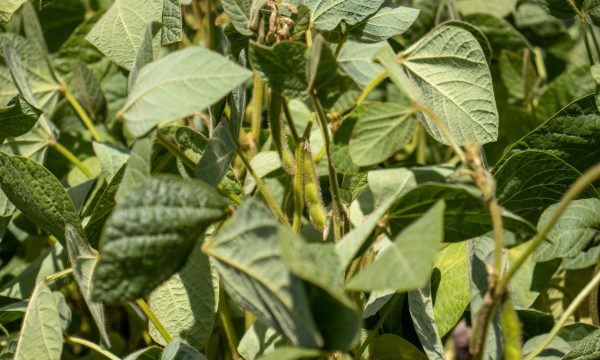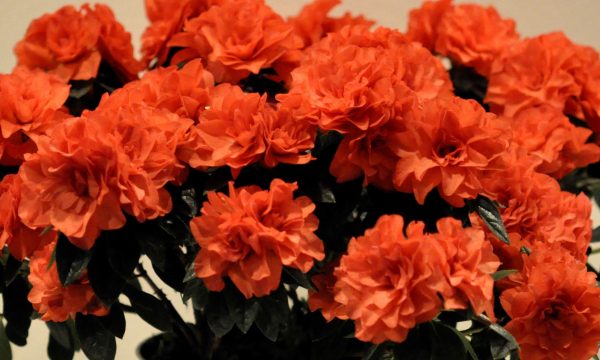Press release Geranium breeding is now more efficient
Breeding of compact hardy geraniums has seen a breakthrough. In his PhD research, Dr. Mehrdad Akbarzadeh (ILVO-UGent) developed a method to predict the success of any cross between parent pairs. The prediction model was developed at the request of Denis-Plants, an East Flanders ornamental plant breeding company. Johan Vrancken (CEO Denis-Plants): "This model makes it profitable to invest in innovative geranium varieties. Now we can set up breeding schemes between parent pairs in a more targeted way. This saves us time and money."
From hobby to high-tech breeding
Until recently, only a few enthusiastic hobby breeders dared to breed geraniums. Denis-Plants saw opportunities for their own professional breeding program, on the condition that distribution bottlenecks would be eliminated. The company asked ILVO for help.
Plant genetics specialist Mehrdad Akbarzadeh mapped the genetic characteristics, chromosome numbers and genome sizes of nearly 60 geranium types. Based on this data, he built a calculation tool that allows a breeder to predict the success of specific combinations of parent plants.
Dr. Mehrdad Akbarzadeh: "In a fairly short time, the prediction model has already yielded four new candidate geranium varieties. Some of them show clearly more compact growth, a desirable characteristic in ornamental cultivation. The new plants are now being evaluated for their commercial value."
Attractive features within sight
Geraniums are hardy garden plants that work well as ground cover in gardens and public green spaces. They come in a wide range of shapes with bee-friendly, beautiful flowers with a long blooming period. The market for perennials is growing and novelties are in continuous demand. More compact varieties are sought after as well as cultivars sporting exuberantly flowering white blooms.
Combination of tools and innovative finishing techniques
At first glance geraniums appear to be crossable, but the resulting embryos rarely subsequently grow into a healthy plant. To overcome this obstacle, the research of ILVO and UGent focused on the technique of embryo rescue. Fertilized (plant) embryos are isolated from the seed at a very early stage and the embryos are allowed to grow up in a laboratory dish, in the right favorable conditions.
A third task of the floriculture research team at ILVO, besides the prediction model and the protocol for 'embryo rescue', was to improve a number of pre-breeding techniques. One of these is called polyploidization. In that method, the number of chromosomes in a plant is doubled. Polyploidization can produce larger plants or flowers. In the trials with the sterile geranium cultivar 'Sanne,' this indeed proved to be the case. An even better result was that some of the polyploid plants turned out to be fertile again.
Mehrdad Akbarzadeh: "The 'Sanne' geranium has very interesting characteristics such as bronze-colored leaves and improved resistance to powdery mildew. Due to its sterility, those traits could not be combined with interesting traits of other cultivars via crossing until now. Now they can."
Compacte plants without GMO-technology
To create more compact geraniums, Ri technology was used. In this process, the soil bacterium Rhizobium rhizogenes naturally transfers a piece of DNA (Ri genes) to the plant and from this, so-called "hairy roots" grow. Effectively regenerating an entire plant from these hairy roots is the limiting factor of this technology. "Only from 'Blushing Turtle' could eight new Ri plants be grown so far. These are clearly aimed at more compact growth compared to the original 'Blushing Turtle.' This again shows new market potential.
Broad commitment to Flemish ornamental horticulture sector
The goal of this doctoral research, co-funded by the private sector, is to give an economic boost to the ornamental horticulture sector. This study involves an important player within the sector while also strengthening the international competitive position of a Flemish company. Flemish companies that want to work with innovative breeding can apply to ILVO's Living Lab for Plant and Soil to apply these techniques to other crops.

Doctoraat verdedigd op 18 juni 2024
Promotoren:
- Johan Van Huylenbroeck (johan.vanhuylenbroeck@ilvo.vlaanderen.be)
- Emmy Dhooghe – Ugent (emmy.dhooghe@ugent.be)
- Stefaan Werbrouck (Stefaan.werbrouck@ugent.be)


